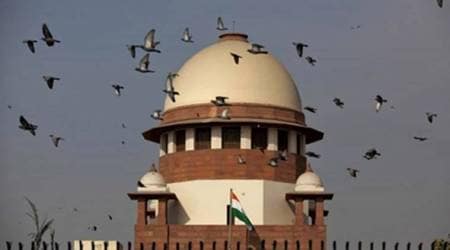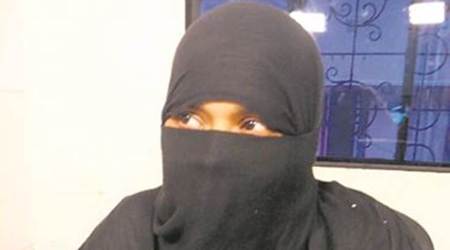 In Uttar Pradesh’s Deoband, 160 km from Delhi and home to one of the most influential seminaries for Sunni Muslims, Darul Uloom Deoband, the ruling had few takers.
In Uttar Pradesh’s Deoband, 160 km from Delhi and home to one of the most influential seminaries for Sunni Muslims, Darul Uloom Deoband, the ruling had few takers.
At her one-room home inside a narrow lane of Deoband, Shazia is conducting a tuition class for four children, including her seven-year-old daughter Alia, on how to read the Quran. Shazia says she was divorced by her husband three months ago through instant triple talaq, “by uttering the words ‘talaq, talaq, talaq’”.
With the eight-year marriage over, the 30-year-old returned to her mother’s house, a few lanes from her former husband’s home. “I have studied only till Class 10, this is all I can do to earn a living for my daughter and myself,” said Shazia, adding that she charges Rs 50 from each student.
And yet, Shazia says, the “shock and sadness” from the “talaq” has not shaken her belief in the Shariat. “When my husband said talaq thrice, it was over. But I would never question the Shariat,” she says.
On Tuesday, the Supreme Court ruled against instant triple talaq or talaq-e-biddat, with a majority judgment of the Constitutional Bench calling the law “un-Islamic”. But in Uttar Pradesh’s Deoband, 160 km from Delhi and home to one of the most influential seminaries for Sunni Muslims, Darul Uloom Deoband, the ruling had few takers.
Inside the seminary, where verses from the Quran rang aloud, the mohtamim (rector), Maulana Mufti Abul Qasim Nomani, said, “The courts and the Parliament don’t have the right to form any law that goes against Islamic law.”
Nomani said, “I cannot comment further till I read the entire judgment… As far as our action on the judgment is concerned, we will hold meetings with the All India Muslim Personal Law Board (AIMPLB) and decide what needs to be done. We stand with the AIMPLB.” At his office inside the seminary, Ashraf Usmani, public relations officer of Darul Uloom Deoband, says he does not agree with the description of triple talaq as “traditional law”. “Triple talaq falls under the Shariat. It is not like we have an option to go for or against it,” said Usmani.
Usmani says the seminary may have issued hundreds of fatwas on triple talaq, but none on discouraging the practice. Outside the seminary, Mohammad Aslam (64), a perfume vendor in Deoband town, said, “Though the Shariat mentions triple talaq, it doesn’t encourage it. The correct method would have been for fatwas to be issued against the men who use triple talaq as a tool to get separated from their wives. Teen talaq bahut khatarnak hai, ghar ujad jaate hain isse (Triple talaq is dangerous, it can destroy homes).”
However, Aslam said, “Right, or wrong, we will always go by the Shariat, and not any court order. The Shariat is above all courts. The only correction that needs to be done by the Darul Uloom Deoband is to discourage the practice of triple talaq.” In another part of the town, Femida, the mother of 21-year-old Heena, blames her daughter’s divorce through instant triple talaq eight months ago on the “greed” for dowry.
“Her former husband’s family wanted a lot of dowry, the greed eventually led to the divorce. But the practice of triple talaq is better than making the woman suffer by not divorcing her. Now that my daughter is with me, I will look for a suitable match and get her married again,” said the 45-year-old. “Triple talaq is law, and it has to be followed. No court is above our law,” said Femida.

